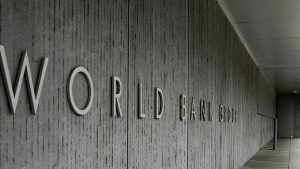
World Bank steering committee, Yellen urge more reforms at lender this year
WASHINGTON – The World Bank‘s steering committee and US Treasury Secretary Janet Yellen on Wednesday called for further reforms this year to expand the bank‘s ability to respond to climate change, pandemics and other crises that are reversing development gains.
Ms. Yellen hosted talks with global finance officials to discuss an initial spate of balance sheet changes that will allow the World Bank to lend an additional $50 billion over 10 years while maintaining its top-tier AAA credit rating, and how to deepen those efforts with it and other multilateral development banks.
Ms. Yellen said the changes already approved had sharpened the mission of the World Bank, but more “bold action” was needed to ensure it could work to end extreme poverty, boost shared prosperity and better meet 21st century challenges like climate change, fragility and pandemics.
“We should use the rest of the year to undertake additional reforms through a staged implementation approach that can be agreed upon by the Board and implemented on a rolling basis.”
The bank‘s steering committee – officially known as the Development Committee – met later in the day, where members welcomed the bank‘s “Evolution Roadmap” and said they looked forward to additional efforts aimed at achieving “major milestones” by the October annual meetings of the World Bank and International Monetary Fund.
“They expect the Board of Executive Directors and World Bank Group management to finalize a work plan with detailed actions to be taken,” the committee‘s chair said in a statement.
Members underscored their commitment to “ensuring that the World Bank Group has adequate financial capacity to respond to development challenges and support its expanded mission.” They called for ambitious approaches to increasing private capital, facilitating investment and leveraging the public sector.
The members also looked forward to exploring additional recommendations made by an independent panel last year, including making the bank‘s emerging markets database more accessible to private investors, optimizing the balance sheet for the low-income lending arm, and exploring a voluntary channeling of IMF Special Drawing Rights.
Zambian women she met during her visit in January understood how climate change reduced agricultural yields, Ms. Yellen said. “We’ve all seen how threats to global health can disrupt entire societies and economies, and how fragility and conflict can lead to significant displacement and migrant flows,” she said.
Ms. Yellen said upcoming events could be leveraged to keep momentum strong for the evolution of the World Bank. Those included the Summit for a New Global Financial Pact to be hosted by France in June, the Group of 20 Leaders’ Summit in India in September, the annual meetings of the World Bank and IMF in Morocco in October, and the United Nations COP28 climate conference to be held in Dubai in November and December.
She said Ajay Banga, the US nominee to replace World Bank President David Malpass, who will step down on June 1, was “the right leader to take the baton from President Mr. Malpass and accelerate our work to evolve this institution.”
Mr. Malpass told the committee he felt the bank had responded with “vigor and speed” to Ms. Yellen‘s call for reforms.
“There was … wide recognition that progress toward these goals requires a sharper focus on sustainability, resilience, and inclusiveness as part of our mission,” he said.
Development Committee members thanked Mr. Malpass for his leadership of the WBG during a historically challenging period, including an unprecedented surge in financing in response to multiple crises. – Reuters
